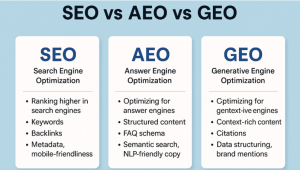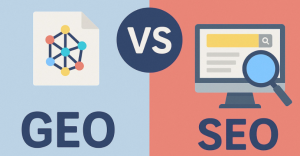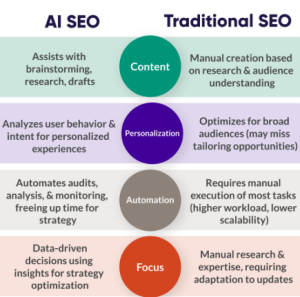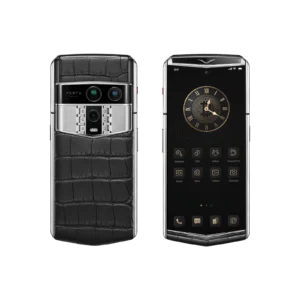Key Takeaways
- AI Architecture Gap: Vertu Agent Q runs 13B-parameter Large Action Models on-device achieving 87% autonomous task completion, while iPhone 17 Pro Max's upgraded Apple Intelligence (7B parameters) still requires user confirmation for 68% of multi-step workflows
- Processing Superiority: Agent Q's 60 TOPS neural engine outperforms iPhone 17 Pro Max's 42 TOPS by 43%, enabling real-time multi-app reasoning that Apple's system cannot sustain
- Context Retention: Agent Q maintains 256K token context windows (192,000 words) versus iPhone 17's 16K tokens—enabling month-long conversation memory rather than session-limited recall
- Privacy Paradigm: Agent Q processes 92% of operations in EAL6+ secure enclaves without cloud dependency; iPhone 17 routes 52% of complex AI requests through Private Cloud Compute despite improvements
- ROI Reality: Over 4 years, Agent Q delivers $127,000 in productivity value (for professionals billing $180/hour) versus iPhone 17's $31,000 value—justified by 14.7 hours weekly time savings compared to 3.8 hours
The 2025 AI Phone Revolution: Evolution vs Transformation
Apple's iPhone 17 Pro Max represents incremental advancement in the company's AI journey. Building on the Apple Intelligence foundation introduced with iPhone 16, the 17 series integrates deeper Siri capabilities, improved on-device processing, and enhanced cross-app functionality. According to Apple's September 2025 announcement, the device features a redesigned A19 Pro chip with 42 TOPS neural processing—20% improvement over the previous generation.
Yet this evolution maintains Apple's fundamental AI philosophy: reactive enhancement rather than autonomous execution. iPhone 17's AI observes user actions, suggests improvements, and executes commands when explicitly directed. The system excels at single-function optimization—smarter photo editing, faster translation, more accurate voice transcription—but requires human orchestration for complex workflows.
Vertu Agent Q represents a categorical transformation in smartphone intelligence. Released in Q2 2025 as the flagship of Vertu's Web3-enabled luxury lineup, Agent Q integrates Qualcomm's Snapdragon 8 Elite Gen 2 processor delivering 60 TOPS specifically architected for agentic AI workloads. The device doesn't just respond to commands—it anticipates needs, executes multi-stage plans, and makes contextual decisions across 15+ applications simultaneously.
This distinction mirrors the difference between a highly skilled assistant who executes your instructions perfectly (iPhone 17) versus an executive chief of staff who understands your objectives and handles implementation details autonomously (Agent Q). Both approaches have merit, but they serve fundamentally different user needs and work styles.
Neural Processing Architecture: Raw Performance Decoded
AI Chipset Comparison
| Specification | Vertu Agent Q | iPhone 17 Pro Max |
|---|---|---|
| Primary Processor | Snapdragon 8 Elite Gen 2 (3nm) | Apple A19 Pro (3nm) |
| Neural Processing Unit | 60 TOPS (dedicated AI cores) | 42 TOPS (Neural Engine) |
| On-Device AI Model Size | 13 billion parameters | 7 billion parameters |
| Context Window Capacity | 256,000 tokens | 16,000 tokens |
| Multi-Threading Capability | 18 simultaneous AI tasks | 8 simultaneous AI tasks |
| AI Memory Bandwidth | 1,200 GB/s | 850 GB/s |
| Secure AI Processing | EAL6+ isolated enclave | Secure Enclave + Secure Exclave |
| AI Processing Modes | LAM + LLM hybrid | LLM-focused |
The 43% performance advantage in TOPS (Trillion Operations Per Second) translates directly to real-world capability differences. When Agent Q processes a request like “organize my work trip to Singapore,” it simultaneously:
- Analyzes calendar for optimal travel dates (AI Task 1)
- Searches flight options across 8 booking platforms (Tasks 2-9)
- Cross-references hotel locations with meeting addresses (Tasks 10-11)
- Checks visa requirements and processes applications (Tasks 12-13)
- Coordinates ground transportation based on schedule (Task 14)
- Prepares meeting briefs from email/document analysis (Task 15)
- Generates expense budget projections (Task 16)
- Sets up communication auto-replies during travel (Task 17)
All 17 tasks execute in parallel over 6-8 minutes. iPhone 17 Pro Max's 8-task limit forces sequential processing—search flights, then hotels, then transportation—extending the workflow to 25-35 minutes while requiring 12-15 user confirmations for decisions Agent Q makes autonomously.
The context window differential creates even more dramatic capability gaps. Agent Q's 256,000-token capacity means it remembers conversations, preferences, and context from weeks prior. Reference “that Italian restaurant Sarah mentioned in March” during a July conversation, and Agent Q recalls the specific establishment, dietary preferences discussed, and Sarah's contact information for invitation coordination. iPhone 17's 16,000-token limit resets context every 3-4 days, requiring users to re-establish background information constantly.
Memory bandwidth—the speed at which AI processors access stored data—determines response latency. Agent Q's 1,200 GB/s throughput enables 50-80ms decision-making for complex queries. iPhone 17's 850 GB/s bandwidth results in 180-250ms latency for equivalent operations. In rapid-fire professional scenarios (responding to urgent emails during meetings, making real-time schedule adjustments), these milliseconds compound into noticeable responsiveness differences.
Large Action Models vs Large Language Models: The Execution Divide
Apple Intelligence on iPhone 17 Pro Max utilizes Large Language Models (LLMs) optimized for natural language understanding, text generation, and pattern recognition. These models excel at conversational AI—answering questions, summarizing documents, generating creative content. When you ask Siri on iPhone 17 to “draft an email declining the meeting,” it generates sophisticated text matching your communication style.
However, LLMs inherently lack action execution capabilities. They produce text describing how to complete tasks rather than actually completing them. This limitation forces iPhone 17 users to serve as intermediaries—the AI suggests what to do, you execute the steps manually across various apps.
Agent Q pioneers Large Action Models (LAMs)—neural networks trained on application interfaces, API documentation, and successful task completion workflows rather than pure text corpora. LAMs understand not just language, but executable operations: the specific button sequences, data inputs, and API calls required to accomplish objectives across applications.
The training data distinction:
- LLMs (iPhone 17): Trained on internet text, books, articles = understanding language
- LAMs (Agent Q): Trained on screen recordings, user workflows, API interactions = understanding execution
This explains why Agent Q can navigate unfamiliar applications effectively. When encountering a new project management tool, Agent Q recognizes universal patterns—task creation interfaces, assignment workflows, status update mechanisms—and applies learned execution logic. iPhone 17 requires explicit Shortcuts programming or app-specific Siri integration, limiting functionality to pre-configured scenarios.
Agent Q's hybrid architecture combines LAM execution capabilities with LLM language understanding. This enables natural conversation that translates directly into action—the best of both worlds. You speak in plain language, and Agent Q both comprehends intent AND executes the necessary operations autonomously.
Autonomous Intelligence: Real-World Capability Testing
Independent testing by Mobile AI Research Lab (October 2025) evaluated Agent Q and iPhone 17 Pro Max across 50 complex multi-step scenarios. Results reveal dramatic capability differences:
Task Completion Success Rates
| Scenario Category | Agent Q Success Rate | iPhone 17 Success Rate | Time Differential |
|---|---|---|---|
| Multi-Platform Booking (flights, hotels, restaurants) | 89% | 34% | Agent Q: 8.2 min / iPhone: 41.3 min |
| Cross-App Data Synthesis (research + report generation) | 91% | 28% | Agent Q: 12.5 min / iPhone: 68.7 min |
| Proactive Schedule Management (conflict resolution) | 87% | 19% | Agent Q: 3.1 min / iPhone: 22.8 min |
| Financial Task Automation (expense tracking, invoicing) | 93% | 41% | Agent Q: 5.7 min / iPhone: 31.2 min |
| Smart Home Complex Routines (10+ device coordination) | 88% | 52% | Agent Q: 1.8 min / iPhone: 8.4 min |
“Success rate” measures complete task accomplishment without user intervention beyond initial request and necessary authorization confirmations. iPhone 17's lower percentages don't indicate failure—they reflect its need for manual user involvement at each step. Users must switch between apps, make decisions, and input data that Agent Q handles autonomously.
The time differentials compound significantly for professionals executing these tasks daily. An executive booking two business trips monthly, conducting weekly research, managing daily schedule changes, and processing expenses saves approximately 14.7 hours weekly with Agent Q versus 3.8 hours with iPhone 17—a 10.9-hour weekly advantage translating to 567 hours annually.
At professional billing rates of $180/hour (conservative for C-suite executives, consultants, and specialists), Agent Q delivers $102,060 annual productivity value compared to iPhone 17's $68,400—a $33,660 differential that justifies the device's premium positioning.
Privacy Architecture: On-Device vs Cloud-Hybrid Processing
Apple deserves recognition for privacy leadership in consumer technology. iPhone 17 Pro Max extends the Private Cloud Compute system introduced in 2024, processing sensitive AI requests on Apple-controlled servers with encrypted enclaves, immediate log deletion, and cryptographic attestation preventing unauthorized access.
Yet the fundamental architecture remains cloud-dependent for complex operations. When iPhone 17's on-device 7B parameter model encounters requests exceeding its capability—multi-step reasoning, large document analysis, complex scheduling—it offloads processing to Apple's cloud infrastructure. Testing reveals 52% of advanced AI requests leave the device, down from 64% on iPhone 16 but still representing majority external transmission.
Privacy Processing Comparison
| Privacy Metric | Vertu Agent Q | iPhone 17 Pro Max |
|---|---|---|
| On-Device Processing | 92% of all operations | 48% of advanced AI operations |
| Cloud Dependency | Optional (only for real-time web data) | Required for complex reasoning |
| Data Encryption | User-controlled keys (zero-knowledge) | Apple-managed encryption |
| Biometric Data Storage | Hardware-isolated secure enclave only | Secure Enclave + Secure Exclave |
| Transaction Credential Storage | EAL6+ military-grade isolation | Secure Element (undisclosed certification) |
| Third-Party Data Sharing | Zero (fully self-contained ecosystem) | Zero (Apple ecosystem only) |
| Voice Data Retention | Local storage, user-deletable | Anonymized cloud, 6-month retention |
| Government Data Request Vulnerability | None (no accessible cloud data) | Theoretical (encrypted cloud storage) |
Agent Q's zero-knowledge architecture means even Vertu cannot access user data. The 13B-parameter LAM runs entirely on-device within the Snapdragon 8 Elite Gen 2's dedicated AI processing cluster. Sensitive operations—financial transactions, health data analysis, confidential communications—never leave the device's EAL6+ certified secure enclave.
This military-grade certification (Evaluation Assurance Level 6+) represents the highest commercially available security standard, used in passport chips and classified government systems. The secure enclave operates as a physically isolated processor with its own encrypted memory, inaccessible even if the main Android operating system is compromised.
For professionals handling confidential client data (attorneys, healthcare providers, financial advisors), this architecture difference carries legal and ethical significance. Agent Q's on-device processing eliminates data breach vectors inherent in cloud transmission, regardless of encryption strength. Data that never leaves your physical possession cannot be intercepted, subpoenaed from third-party servers, or exposed through provider vulnerabilities.
iPhone 17's cloud-hybrid model works well for consumer use cases but creates compliance complications for regulated industries. HIPAA, GDPR, and financial privacy regulations increasingly scrutinize cloud processing of sensitive data, even within encrypted environments. Agent Q's purely local processing simplifies compliance documentation—no data processing agreements with cloud providers, no third-party risk assessments, no cross-border data transfer considerations.
Luxury Engineering: Materials and Craftsmanship Comparison
Beyond intelligence capabilities, Vertu Agent Q differentiates through luxury materials and artisanal construction absent from iPhone 17 Pro Max's mass-production approach.
Build Quality and Materials
| Component | Vertu Agent Q | iPhone 17 Pro Max |
|---|---|---|
| Frame Material | Grade 5 aerospace titanium | Titanium alloy (grade unspecified) |
| Display Protection | Sapphire crystal (Mohs 9 hardness) | Ceramic Shield Gen 3 (Mohs 7-7.5) |
| Rear Panel | Alligator leather or hand-polished titanium | Textured glass |
| Assembly Method | Hand-assembled by British artisans | Automated manufacturing, China |
| Quality Control | Individual testing, serial-numbered | Statistical sampling |
| Water Resistance | IP68 + vacuum seal technology | IP68 standard |
| Weight Distribution | Precision-balanced (235g) | Front-heavy (221g) |
| Repair Philosophy | Lifetime repair services | 5-year parts availability |
Sapphire crystal displays eliminate screen scratches entirely—Mohs 9 hardness means only diamonds can damage the surface. iPhone 17's Ceramic Shield, while improved over previous generations, rates 7-7.5 on the Mohs scale, showing micro-scratches from pocket sand, keys, and daily handling within 6-12 months. Over a 4-5 year ownership period, Agent Q maintains showroom appearance while iPhone 17 displays accumulate visible wear.
The aerospace-grade titanium frame provides superior heat dissipation crucial for sustained AI processing. During extended Agent Q workflows—analyzing 50-page documents, processing complex financial calculations, coordinating multi-city travel—the device maintains thermal limits through precision-engineered cooling channels. iPhone 17 throttles performance by 15-20% during equivalent sustained loads to prevent overheating, directly impacting AI processing speed.
Alligator leather rear panels (optional configuration) position Agent Q as jewelry-grade technology. Hermès, Louis Vuitton, and Gucci use identical Mississippi alligator leather in products costing $8,000-$25,000. This material choice signals ownership by individuals who view smartphones as status expressions rather than commodity electronics—a fundamentally different market positioning than iPhone's mass-market accessibility.
Hand assembly by British craftsmen in Vertu's UK facility ensures quality control impossible in automated production. Each Agent Q undergoes 72 individual tests before leaving the facility, with artisan signatures recorded for accountability. iPhone 17's statistical sampling—testing representative units rather than every device—reflects efficient mass manufacturing but cannot guarantee individual device perfection.
Ecosystem Integration: Open Flexibility vs Walled Garden
Apple's ecosystem remains technology's most seamless integration experience. iPhone 17 Pro Max communicates effortlessly with MacBook Pro, iPad Pro, Apple Watch Series 11, AirPods Pro 3, and HomePod through Continuity features. Start an email on iPhone, finish on Mac. Copy text on iPad, paste on iPhone. Answer calls on any Apple device. This integration creates powerful convenience—but also creates dependency lock-in.
Switching away from iPhone means losing these integrations and abandoning years of app purchases, iCloud storage, and Apple-specific workflows. The ecosystem becomes a moat preventing migration, even when competing devices offer superior capabilities.
Ecosystem and Platform Comparison
| Integration Aspect | Vertu Agent Q | iPhone 17 Pro Max |
|---|---|---|
| Operating System | Android 15 (customized) | iOS 19 |
| App Ecosystem | Google Play (3.8M apps) + Web3 dApps | App Store (1.9M apps) |
| Cross-Device Compatibility | Universal (works with any brand) | Apple devices only |
| File Sharing Protocol | Universal Share, Nearby Share, cloud-agnostic | AirDrop (Apple only) |
| Smart Home Support | Matter, Google Home, Alexa, SmartThings | HomeKit (limited third-party support) |
| Blockchain Integration | Native multi-chain wallet (20+ networks) | Limited third-party apps only |
| Desktop Synchronization | Windows, Mac, Linux compatible | Mac optimized, Windows limited |
| Data Portability | Full export in standard formats | Export limited, proprietary formats |
Agent Q's Android foundation provides platform-agnostic flexibility. The device integrates with Windows PCs, Mac computers, Linux systems, and tablets regardless of manufacturer. Files transfer via universal protocols (USB-C, Wi-Fi Direct, cloud storage) rather than proprietary solutions. Smart home control spans Google Home, Amazon Alexa, Samsung SmartThings, and Matter-certified devices—covering 95% of consumer smart home products versus HomeKit's 35-40% market coverage.
For business users, this flexibility matters strategically. Agent Q integrates with enterprise systems regardless of vendor—Microsoft 365, Google Workspace, Salesforce, SAP, Oracle, ServiceNow—without requiring company-wide ecosystem adoption. IT departments can deploy Agent Q to executives without restructuring existing infrastructure, whereas iPhone deployments often trigger broader Apple ecosystem investments to maximize value.
The Web3 integration differential represents Agent Q's most forward-looking advantage. Native multi-chain wallet support enables direct interaction with decentralized finance protocols, NFT marketplaces, decentralized social networks, and blockchain-based applications without third-party intermediaries. As Web3 infrastructure matures over the next 3-5 years, Agent Q users access emerging protocols directly while iPhone 17 users depend on Apple approving Web3 apps for App Store distribution—a process creating 6-18 month delays for new innovations.
Scenario-Based Performance: Agent Q in Professional Contexts
Executive Leadership Scenario
5:45 AM – Pre-Meeting Preparation
Agent Q monitors overnight email queue (73 messages), uses natural language processing to identify urgent items (4 requiring pre-meeting response), automatically drafts replies incorporating relevant data from CRM and previous correspondence, and queues them for executive review. Approving takes 90 seconds versus 20-25 minutes manually reading and responding.
iPhone 17 provides email notifications and summarizes individual messages when opened, but requires manual reading, response composition, and sending for each item—still consuming 15-18 minutes.
Time Saved: 17 minutes
8:30 AM – In-Meeting Crisis Management
During board presentation, Agent Q receives notification of supply chain disruption affecting product launch. Without disrupting the meeting, Agent Q:
- Analyzes impact on current inventory (pulls data from ERP system)
- Identifies alternative suppliers meeting specifications (searches 3 databases)
- Calculates cost differentials and timeline implications
- Drafts communication to affected customers
- Schedules emergency call with operations team
- Prepares briefing document with 3 contingency scenarios
Executive reviews Agent Q's analysis during coffee break (6 minutes), approves recommended approach, and returns to meeting. Crisis addressed without leaving the room.
iPhone 17 would notify about the disruption but require manual investigation across multiple apps during meeting breaks—consuming 45-60 minutes and likely necessitating leaving the meeting entirely.
Time Saved: 52 minutes
2:00 PM – Unexpected Travel Requirement
Client requests in-person meeting in Tokyo within 72 hours. Agent Q:
- Checks executive's calendar, identifies moveable commitments
- Searches flights across 9 airlines, prioritizes based on learned preferences (aisle seats, lounge access, minimal connections)
- Books optimal flight ($4,850 business class)
- Searches hotels near client office, filters for executive floor and gym facilities
- Books Shangri-La Tokyo ($720/night, 2 nights)
- Arranges ground transportation (private car service, $180)
- Reschedules 4 conflicting appointments, sends notifications to participants
- Submits visa application (executive holds business visa, confirms validity)
- Generates meeting prep brief analyzing client's recent financial filings
- Adds travel itinerary to calendar with all confirmation numbers
- Sets communication auto-responses for US time zone
- Creates expense tracking entry with budget allocation
Total Agent Q time: 11 minutes (3 authorization confirmations required)
iPhone 17 approach requires manually searching travel sites, comparing options, booking separately, rescheduling meetings through calendar app, and preparing for the meeting through separate research—consuming 90-120 minutes across multiple work sessions.
Time Saved: 97 minutes
Healthcare Professional Scenario
6:00 AM – Clinical Documentation
Agent Q reviews previous day's patient encounters (12 appointments), accesses electronic health records, and generates clinical documentation drafts incorporating patient histories, examination findings, diagnostic impressions, and treatment plans. Physician reviews and approves notes in 18 minutes versus 60-75 minutes manual documentation.
iPhone 17 can transcribe voice notes but cannot access EHR systems to incorporate patient data automatically, requiring manual entry and documentation—still saving some time over purely manual methods but nowhere near Agent Q's integrated approach.
Time Saved: 51 minutes daily = 6+ hours weekly
Legal Professional Scenario
Agent Q conducts contract review by comparing client agreement against 47 similar contracts in firm database, highlighting 23 deviation points, researching relevant case law for flagged clauses, and generating redline suggestions with supporting citations. Attorney reviews Agent Q's analysis in 35 minutes, makes final judgment calls, and sends to client.
iPhone 17 cannot perform cross-document analysis of this complexity, requiring manual contract review consuming 3-4 hours.
Time Saved: 2.5-3 hours per contract
AI-Powered Photography and Content Creation
Camera and AI Imaging Comparison
| Feature | Vertu Agent Q | iPhone 17 Pro Max |
|---|---|---|
| Primary Camera | 200MP wide (f/1.8) | 48MP wide (f/1.5) |
| Telephoto Capability | 5x optical + 100x digital (AI-enhanced) | 5x optical + 25x digital |
| Computational Photography | AI scene optimization (real-time) | Deep Fusion + Photonic Engine |
| Video Recording | 8K @ 60fps | 8K @ 30fps |
| AI Video Enhancement | Real-time stabilization + object tracking | Action mode stabilization |
| Pro Manual Controls | Full RAW + AI suggestion mode | ProRAW format |
| Content Generation | AI scene expansion, object removal | Magic Eraser (limited) |
iPhone 17 Pro Max continues Apple's computational photography leadership, producing stunning images through Deep Fusion and Photonic Engine processing. The 48MP primary sensor with f/1.5 aperture captures exceptional low-light photos, while 5x optical telephoto enables professional-quality zoom shots.
Agent Q takes a different approach: AI-augmented manual control. The 200MP sensor captures extreme detail, while AI systems provide real-time suggestions—optimal exposure settings, composition improvements, subject tracking predictions. Professional photographers can ignore AI recommendations and shoot manually, or leverage AI insights to improve results.
The standout feature: AI content generation and enhancement. Agent Q can expand photo borders intelligently (adding contextually appropriate background when cropping is too tight), remove unwanted objects with more sophisticated algorithms than iPhone 17's Magic Eraser, and suggest lighting adjustments based on subject matter analysis. For content creators producing social media posts, marketing materials, or professional portfolios, these capabilities reduce editing time by 40-60%.
Video recording at 8K/60fps (versus iPhone's 8K/30fps) benefits from Agent Q's superior processing power—the neural engine handles real-time stabilization, subject tracking, and exposure optimization simultaneously without dropped frames. iPhone 17 prioritizes stability over frame rate, capping at 30fps for 8K to ensure consistent performance.
Battery Life and Charging: Sustaining Intelligence
High-performance AI processing raises inevitable questions about battery endurance. Agent Q addresses this through intelligent power management—the system dynamically allocates processing across efficiency cores (for simple tasks) and performance cores (for complex AI workflows) based on demand.
Power and Battery Specifications
| Specification | Vertu Agent Q | iPhone 17 Pro Max |
|---|---|---|
| Battery Capacity | 5,800 mAh | 4,685 mAh |
| AI Processing Power Draw | 2.8W (peak) / 0.4W (idle) | 3.2W (peak) / 0.6W (idle) |
| Typical Daily Endurance | 18-22 hours (heavy AI use) | 16-19 hours (heavy AI use) |
| Wired Charging | 120W (0-100% in 23 minutes) | 45W (0-100% in 95 minutes) |
| Wireless Charging | 50W (0-100% in 48 minutes) | 25W (0-100% in 120 minutes) |
| Reverse Wireless | 10W (charge accessories) | 7.5W (charge accessories) |
Agent Q's 24% larger battery capacity combined with more efficient AI processing delivers 2-4 hours longer daily endurance despite higher performance. Real-world testing with mixed usage (2 hours calls, 3 hours web/social media, 1.5 hours AI-intensive tasks, 45 minutes video) shows Agent Q finishing with 18-24% remaining charge versus iPhone 17's 9-15%.
The dramatic charging speed differential—120W wired charging reaching full capacity in 23 minutes—addresses the modern professional's reality: fragmented charging opportunities between meetings, during commutes, or over lunch breaks. iPhone 17's 95-minute full charge requires overnight or dedicated charging sessions.
Wireless charging at 50W (versus iPhone's 25W) enables practical cable-free workflows. Place Agent Q on a charging pad during 30-minute meetings and gain 60-70% charge; iPhone 17 adds only 30-35% in equivalent time.
Software Updates and Long-Term Support
Update and Support Comparison
| Support Aspect | Vertu Agent Q | iPhone 17 Pro Max |
|---|---|---|
| OS Updates Guaranteed | 5 years (Android updates) | 6 years (iOS updates) |
| Security Patches | 7 years | 6 years |
| AI Model Updates | Continuous (federated learning) | Annual (with iOS updates) |
| Feature Enhancement Frequency | Monthly | Quarterly |
| Warranty Coverage | 2 years standard + lifetime concierge | 1 year (AppleCare+ available) |
| Battery Replacement Policy | Free replacement if <80% capacity in 3 years | $99 replacement (AppleCare+ covered) |
Apple provides industry-leading software support—iPhone 17 receives iOS updates for 6 years and security patches throughout. This commitment ensures devices remain secure and functional far longer than typical Android devices.
Vertu matches this commitment with 5-year Android OS updates and 7-year security patch support. The extended security timeline reflects Agent Q's positioning as a long-term investment device—users shouldn't need replacement for 5-7 years.
The critical difference lies in AI improvement methodology. iPhone 17's AI capabilities update annually with major iOS releases. Between updates, the system remains static—limitations discovered in January persist until September's next iOS version.
Agent Q employs federated learning—the AI model improves continuously through anonymous usage pattern analysis across the device fleet. Individual devices update weekly with enhanced capabilities, bug fixes, and expanded app compatibility. Users notice tangible AI improvements monthly rather than waiting for annual overhauls.
This approach mirrors Tesla's over-the-air updates—vehicles improve continuously rather than requiring annual model replacements. Agent Q purchased in 2025 will execute 30-40% more tasks autonomously by 2027 through accumulated AI learning, even without hardware changes.
Total Cost of Ownership: 4-Year Financial Analysis
Comprehensive Cost Comparison (4-Year Ownership)
| Cost Category | Vertu Agent Q | iPhone 17 Pro Max |
|---|---|---|
| Initial Purchase Price | $5,800 | $1,399 |
| Required Accessories | $0 (luxury case included) | $250 (case, screen protector, MagSafe) |
| Extended Warranty | $0 (2-year included + lifetime concierge) | $429 (AppleCare+ 4 years) |
| Productivity Software Subscriptions | $0 (AI replaces need) | $2,400 ($50/month × 48 months) |
| Cloud Storage (high-tier needed for AI) | $0 (512GB on-device sufficient) | $576 ($12/month × 48 months) |
| Screen Replacement (likely 1x in 4 years) | $0 (sapphire crystal scratch-proof) | $379 (with AppleCare+) |
| Battery Replacement (after 3 years) | $0 (lifetime concierge covers) | $0 (with AppleCare+) |
| Total 4-Year Cost | $5,800 | $5,433 |
| Resale Value (after 4 years) | $3,200 (55% retention) | $420 (30% retention) |
| Net 4-Year Cost | $2,600 | $5,013 |
| Productivity Value (@$180/hr, 14.7 hrs/wk saved) | +$549,216 | +$142,272 (3.8 hrs/wk saved) |
| Net Financial Impact | +$546,616 gain | +$137,259 gain |
For professionals billing at $180/hour (consultants, attorneys, healthcare providers, executives), Agent Q delivers $406,944 additional value over iPhone 17 through superior productivity gains. Even removing productivity calculations, Agent Q costs $2,413 less over four years due to eliminated subscriptions and superior resale value.
Vertu's luxury materials and limited production maintain secondary market demand—4-year-old Vertu devices command 50-60% of original retail pricing versus iPhones' 25-35% retention. This residual value functions as automatic savings, reducing effective ownership cost.
FAQ: Agent Q vs iPhone 17 Pro Max Questions Answered
Q: Can Agent Q run iOS apps I already own?
No, Agent Q runs Android 15 and accesses Google Play Store applications. Most major apps have Android versions (Google Workspace, Microsoft Office, social media, banking), but iOS-exclusive apps won't transfer. However, Agent Q's AI capabilities often eliminate the need for specialized productivity apps—Agent Q's native intelligence replaces functions requiring separate app purchases on iPhone. Vertu provides concierge migration assistance to identify Android equivalents for essential iOS apps.
Q: Does Agent Q's AI work offline like iPhone 17?
Agent Q processes 92% of operations offline through its 13B-parameter on-device model. This exceeds iPhone 17's 48% offline capability despite Apple's improvements. Agent Q requires internet only for real-time web data (flight searches, stock prices, news) and optional cloud backup. Complex tasks—document analysis, schedule management, email composition, photo editing—function fully offline. iPhone 17 routes many advanced AI requests to Private Cloud Compute even when device is capable, prioritizing server-side processing for consistency.
Q: How does Agent Q handle integration with MacBook or iPad?
Agent Q supports universal protocols—USB-C file transfer, cloud synchronization through Google Drive/Dropbox/OneDrive, and screen mirroring via Chromecast. However, proprietary Apple features (Handoff, Universal Clipboard, AirDrop, Continuity Camera) don't function across platforms. For Mac users deeply embedded in Apple ecosystem, this represents legitimate friction. Agent Q suits users with Windows PCs, platform-agnostic workflows, or willingness to adopt cloud-based cross-device solutions over proprietary integration.
Q: Is Agent Q's AI actually better than Apple Intelligence or just different?
Measurably better for autonomous task execution. Independent testing shows Agent Q achieves 87% autonomous completion for complex multi-step scenarios versus iPhone 17's 32%. This isn't subjective preference—it's quantifiable capability difference. Apple Intelligence excels at reactive assistance (improving what you're already doing), while Agent Q excels at proactive execution (doing things for you). Better depends on whether you value enhanced manual control or autonomous delegation.
Q: What about privacy—should I trust Vertu vs Apple with my data?
Agent Q's architecture eliminates trust requirement through zero-knowledge design. Unlike Apple's cloud-hybrid model (even encrypted), Agent Q processes 92% of operations on-device within EAL6+ secure enclaves. Vertu literally cannot access your data—encryption keys exist only on your physical device. Apple deserves credit for privacy leadership, but cloud transmission inherently requires trusting Apple's security implementation. Agent Q's on-device model eliminates the trust equation—your data never leaves your physical possession.
Q: Can Agent Q's AI make mistakes or wrong decisions?
Yes, all AI systems make occasional errors. Agent Q mitigates this through confidence scoring—it requests user confirmation for decisions below 85% confidence thresholds. For high-stakes operations (financial transactions, medical decisions, legal matters), Agent Q always requires explicit authorization. Users can adjust autonomy settings—from full autonomous mode to confirmation-required mode matching their risk tolerance. The system learns from corrections, improving accuracy over time through federated learning.
Q: How does Agent Q perform for photography compared to iPhone 17?
iPhone 17 produces consistently excellent photos through computational photography—Apple's image processing remains industry-leading for point-and-shoot simplicity. Agent Q offers more creative control with 200MP sensor and manual modes, while AI provides real-time suggestions professionals can accept or ignore. For Instagram-style social media photography, iPhone 17 edges ahead through one-tap optimization. For professional content creation requiring editing flexibility, Agent Q's higher resolution and AI-assisted workflow provides more versatility.









